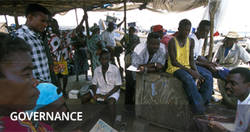
An efficient urban food policy needs a broad involvement of stakeholders, allowing horizontal (at the local level), vertical (with other territorial levels), and multisectorial coordinations. Such governance mechanisms are not easy to set.
That is why this section shares examples of participatory multi-level food governance, multi-stakeholder platforms or food councils, education and awareness raising campaigns, open data of food policies, internal organizations of local governments, partnerships with civil society, the private sector, universities and international organizations.
Related Resources
Governance and planning, Food production and ecosystem management - Articles
Urban forests play an important role for urban dwellers, providing environmental, social and economic services. One of these benefits is the capacity of trees to provide food, an aspect which has the potential to increase food security that has been gaining increasing attention over the past few years. However, there...
Brazil (Latin America and the Caribbean)
2020 - V.Vannozzi Brito, S.Borelli
Governance and planning - Guidelines
A circular city is one that promotes a just transition from a linear to a circular economy across the urban space, through multiple city functions and departments and in collaboration with residents, businesses and the research community. In practice, this means shifting away from the linear economy’s “take, make, waste” model,...
(Global coverage)
2020 - Coll.
Governance and planning - Reports & Case Studies
Africa played an active role in the COP21 negotiations, emphasising the importance of cities at the forefront of climate resilience and the need for mechanisms to finance adaptation to climate change. Many opportunities exist for fostering cross-border co-operation between local authorities. However, given the lack of suitable legislation and funding,...
Benin, Burkina Faso, Niger, Togo (Africa)
2020 - Coll.
Governance and planning - Working documents
Nature-based Solutions (NbS) directly address three urgent and fundamental challenges: they improve the quality of life in cities, they reduce the urban ecological footprint, and they increase cities’ capacity to adapt to climate change in a cost-effective way. By accelerating the implementation of NbS, decision-makers can help their cities adapt to...
(Global coverage)
2020 - Coll.
Governance and planning - Directories
Thriving ecosystems are well-managed ecosystems. They provide essential benefits and services to people who have access to green spaces. Nature-based solutions, such as green interventions at urban level, can address public health related issues. However, knowledge on the effectiveness of green interventions in terms of human health, well-being and equity...
United States of America (North America)
2020 - Coll.
